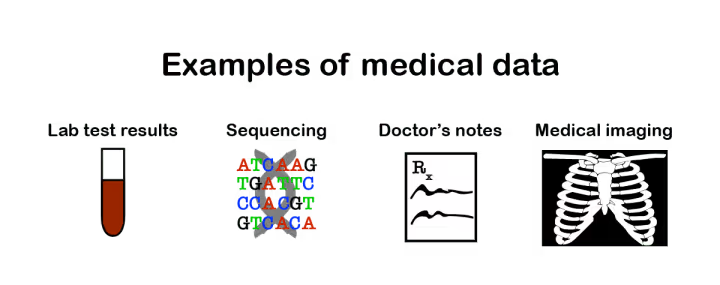
Top 10 Knowledge Management Platforms for R&D Teams in 2025


Big data has become an essential part of the modern R&D landscape. With data analysis tools, companies can now gain a deeper understanding of how big data can revolutionize pharmaceutical R&D processes.
In this blog post, we’ll explore what big data is, how big data can revolutionize pharmaceutical R&D, and which technologies are used for this purpose.
We’ll also look into how companies should implement a successful strategy for making use of big data within their pharma R&D operations.
Table of Contents
What is Big Data?
How Big Data Can Revolutionize Pharmaceutical R&D
Improved Drug Discovery and Development Processes
Increased Efficiency in Clinical Trials and Regulatory Compliance
Big Data Technologies for Pharmaceutical R&D
Benefits of Big Data in Pharmaceutical R&D
Improved Decision-Making and Cost Savings
Enhanced Quality Control and Safety
Accelerated Time To Market For New Drugs And Treatments
How Big Data Means Big Opportunities for Pharma Industry
Big Data is a term used to describe the massive amounts of data that organizations collect and store. It can include structured, semi-structured, and unstructured data from various sources such as customer interactions, sensor readings, machine logs, social media posts, and more.
Big Data has become increasingly important in recent years due to its ability to provide predictive analytics when combined with advanced analytical techniques such as artificial intelligence (AI) or machine learning (ML).
The use of big data allows companies to gain valuable insights into their customers’ behaviors, preferences, needs, and wants. Companies can also use this information for marketing campaigns targeting specific audiences or groups based on their interests or demographics.
Additionally, big data helps companies identify potential risks before they occur so they can take proactive measures against them.
Finally, it enables businesses to make better decisions by analyzing large datasets quickly using AI/ML algorithms instead of relying solely on manual processes.
Despite the numerous benefits associated with big data analysis, there are still some challenges that need to be addressed before they can be fully utilized in business operations. These include privacy concerns when collecting personal information, security issues when storing sensitive information, lack of skilled personnel, costs in setting up the infrastructure, and scalability issues when dealing with real-time streaming applications.

(Source)
Big data is revolutionizing the pharmaceutical industry by providing new opportunities for drug discovery and development. With the use of big data, researchers can analyze vast amounts of information to gain insights into how drugs work in different contexts. This helps them make better decisions about which drugs to pursue and develop more quickly.
Big data has enabled researchers to identify potential drug targets faster than ever before by analyzing large datasets from clinical trials, patient records, genomics studies, and other sources. By leveraging this information, they can determine which molecules are most likely to be effective against a particular disease or condition.
Additionally, big data allows researchers to compare multiple treatments side-by-side in order to identify those that offer the best outcomes for patients.
Big data also provides an efficient way for pharmaceutical companies to conduct clinical trials by helping them design experiments that yield reliable results while minimizing costs.
Furthermore, it enables companies to ensure regulatory compliance by tracking changes in regulations across countries as well as monitoring safety protocols during drug development processes.
Big data can help improve patient care through personalized medicine initiatives based on individual genetic profiles or lifestyle factors like diet or exercise habits. This can lead to improved health outcomes for patients overall.
Additionally, it can be used to monitor treatment effectiveness over time so physicians can adjust medications accordingly if needed.
Key Takeaway: Big data is revolutionizing the pharmaceutical industry by enabling researchers to identify potential drug targets faster and make better decisions about which drugs to pursue. It also provides an efficient way for companies to conduct clinical trials, ensure regulatory compliance, and improve patient care through personalized medicine initiatives.
Big Data has revolutionized the way pharmaceutical companies approach R&D. To leverage Big Data effectively, organizations must use the right technologies.
Artificial Intelligence (AI) and Machine Learning (ML) are two of the most powerful tools for analyzing large datasets. AI algorithms can be used to identify patterns in data that may not be obvious at first glance. ML models can then be trained on these patterns to make predictions about future outcomes or trends.
These technologies are being used by pharmaceutical companies to accelerate drug discovery and development processes, improve clinical trial results, and enhance patient care outcomes.
Natural Language Processing (NLP) is another technology that is becoming increasingly important for Big Data analysis in pharmaceutical R&D projects. NLP enables computers to understand human language so they can interpret unstructured text-based data such as medical records or reports from clinical trials more accurately than ever before. This technology helps researchers uncover hidden relationships between different variables which could lead to new discoveries or treatments.
Cloud computing platforms provide a secure environment where teams can store their data safely while still allowing them access from anywhere with an internet connection. This makes it easy for remote teams to collaborate without having to worry about security issues.
Cloud computing also allows organizations to scale up quickly when needed without having to invest in more hardware infrastructure. This is ideal for big data projects that require the processing and storage of massive amounts of data points over long periods of time.
Key Takeaway: Big Data can revolutionize pharmaceutical R&D by leveraging powerful technologies such as Artificial Intelligence (AI), Machine Learning (ML), Natural Language Processing (NLP), and cloud computing platforms.
Big data has revolutionized the pharmaceutical industry, offering a range of benefits to R&D teams. By leveraging big data, research and development teams can make more informed decisions faster and at lower costs.
Big data provides researchers with access to vast amounts of information which allows them to identify trends in drug efficacy or safety. Additionally, big data helps reduce the cost of conducting clinical trials by providing insights into patient populations that are most likely to respond positively to treatments.
With access to large datasets, researchers can better monitor quality control standards throughout the entire process from drug discovery through manufacturing and distribution. Big data also helps ensure safety standards are met by providing real-time monitoring capabilities for adverse events in clinical trials.
By utilizing predictive analytics tools powered by big data, researchers can accelerate time-to-market for new drugs or treatments by identifying which ones have higher chances of success before they enter clinical trials. This shortens their timeline from concept to approval.
Big data is revolutionizing the pharmaceutical industry. By leveraging big data analytics, pharma companies can gain insights into their customer base and develop more effective drugs.
Big data allows them to identify new candidates for drug trials and develop them into effective medicines faster than ever before.
Big data also helps pharma companies to streamline complex business processes and improve efficiency in operations. This leads to higher profitability as well as better decision-making capabilities.
With the help of big data analytics, pharma companies can analyze trends, predict outcomes, make smarter decisions, and optimize resources for maximum impact.
In addition to this, big data can be used by pharma companies to monitor patient enrolment in clinical trials more effectively and accurately assess the efficacy of drugs under development or already on the market.
It also helps with personalized medicine initiatives by allowing healthcare providers access to individualized health records that are constantly updated with real-time information from various sources such as sensors or social media platforms like Twitter or Facebook.
The use of big data analytics has enabled life sciences organizations around the world to reduce costs while improving accuracy in research activities related to drug discovery and development. When it comes to analyzing large volumes of structured and unstructured datasets, a centralized platform like Cypris makes it easier for R&D teams to get quick actionable insights without having to spend too much time managing multiple disparate systems all at once.
By leveraging the right technologies such as AI, ML, and NLP, companies can unlock the power of big data to gain competitive advantages in their industry. And with Cypris’ research platform, companies have access to all of their data sources in one place and are able to quickly uncover valuable insights that will help them stay ahead of the competition.
This is how big data can revolutionize pharmaceutical R&D.
If you are looking to revolutionize pharmaceutical R&D, Cypris is the answer. Our research platform provides rapid time to insights and centralizes data sources into one convenient platform. With our advanced tools, teams can more easily analyze large amounts of complex data quickly and accurately.
Stop wasting valuable time on tedious tasks – join us in ushering in a new era of pharmaceutical innovation with big data!